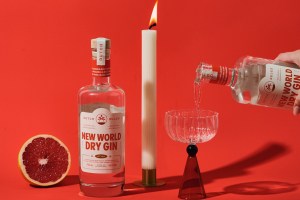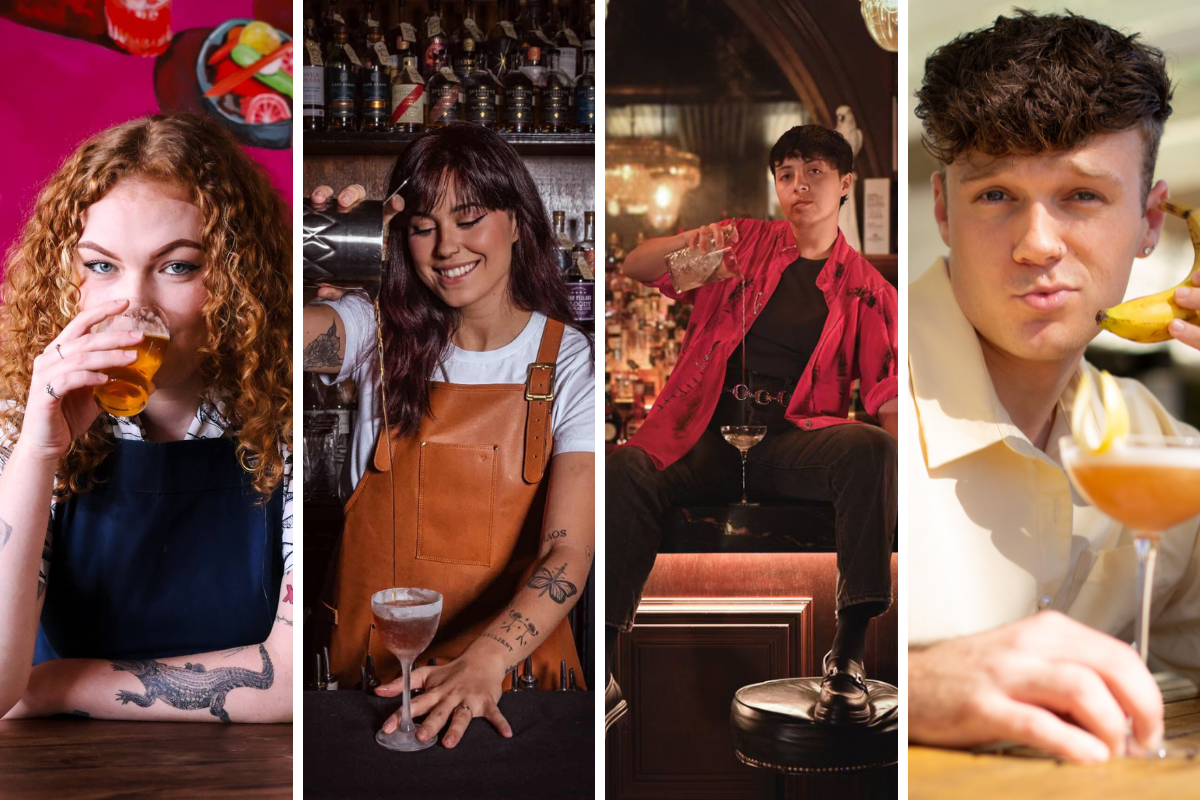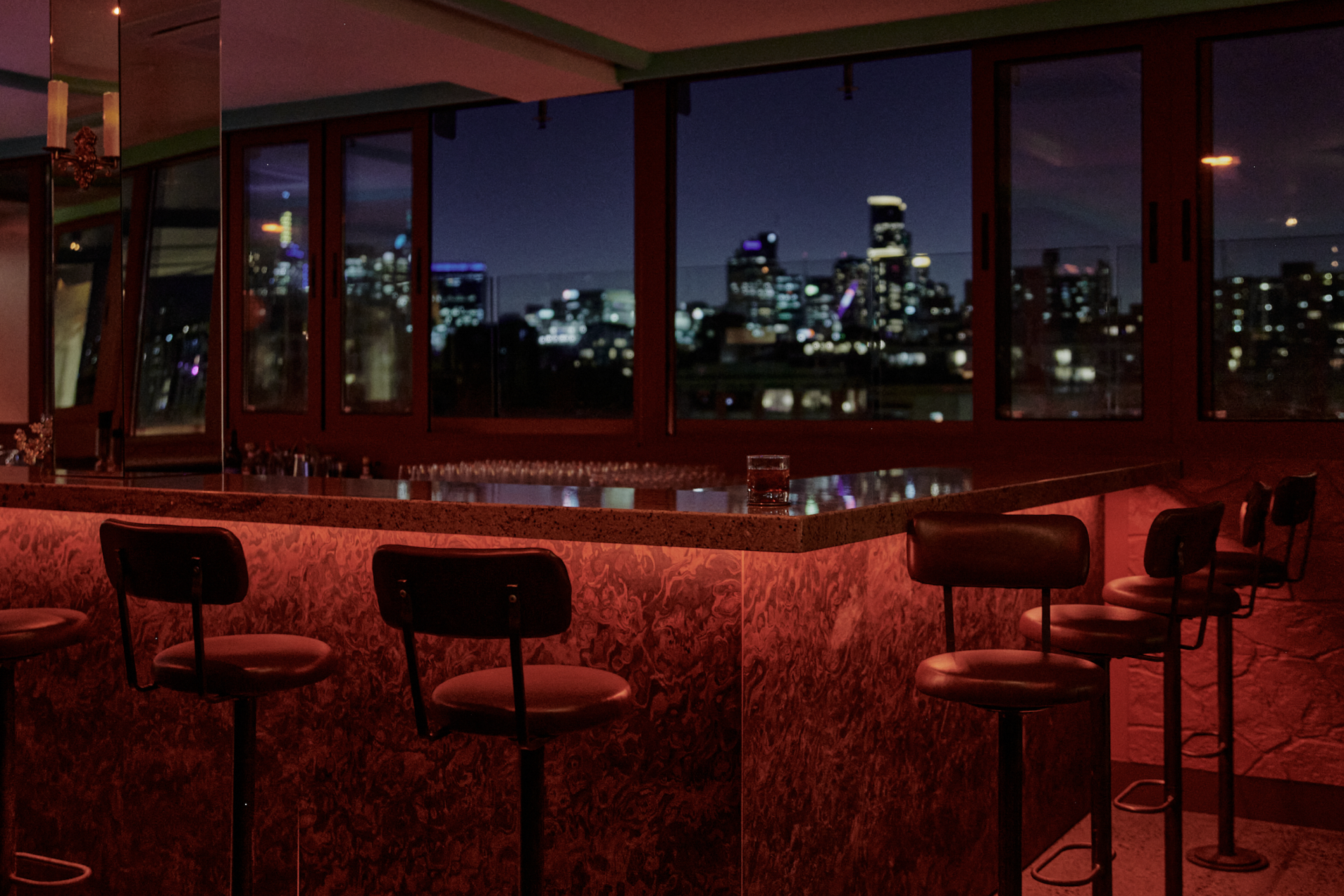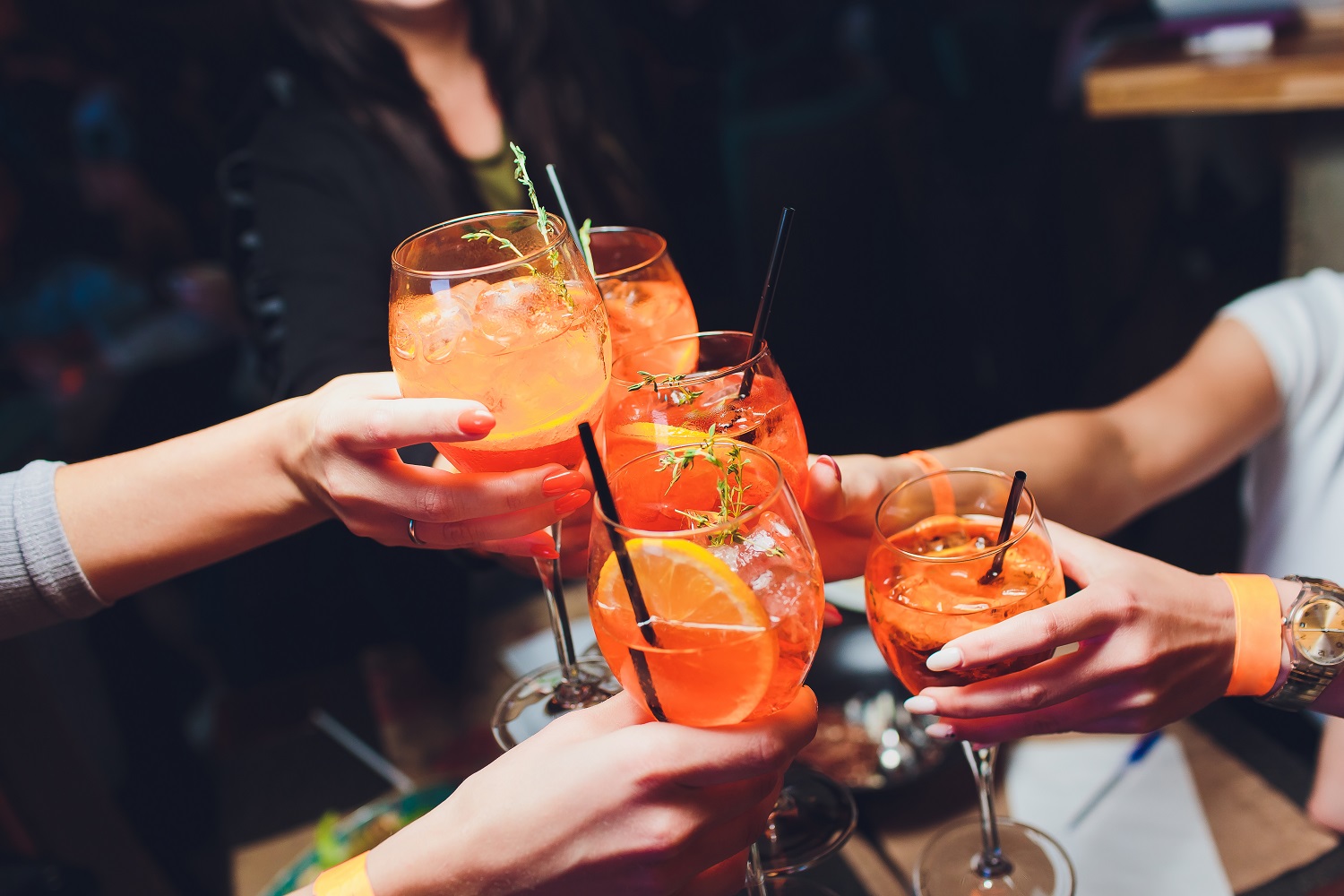The bar industry is an inherently wasteful one – so what can we do, as an industry, to combat that and create a more sustainable future for bars?
THE PANEL
• Alissa Gabriel, Charlie Parker’s
• Tom Pigott, Uncle Hops
• Alexandra Cowan, The Sheaf
• Drue Stevens, Clock Hotel
• Glynn Firth, Solotel Beverage Manager
• Jeremy Shipley, Solotel Group Bars Manager
• Steve Davis, Opera Bar
• Stefanie Collins, BARS&clubs
WHY IS SUSTAINABILITY IMPORTANT? WHAT IS DRIVING THE CONVERSATION?
DS: It’s really easy to produce a lot of waste in this industry. Glass bottles, straws, the fruit that we throw in drinks. It’s better to get it in check and under control.
AG: Just the amount of waste that the hospitality industry sends to landfill is astronomical. Sustainability is a mission that you have to constantly work toward, but I think this industry is definitely moving toward more sustainable thinking around how we create drinks and how we operate.
JS: I think you have to give the boys from White Lyon and Dandylyon props for bringing it to our minds. The waste that we have at our bigger venues is phenomenal. Anything we can do to chip away at it is really important to us.
AC: I think external factors are putting pressure on a lot of businesses to create a more sustainable offering. Before it was about making the most money and offering the best prices but now there are a whole lot of other factors at play and people are more concerned about how sustainable they are.
TOP DOWN? OR BOTTOM UP?
JS: From our point of view, it’s got to come from everywhere. It’s like anything, the people at the top can bleat on about something but if you don’t get a buy in from the team on the ground who is making drinks every single day, there’s no point.
AG: You have to have team passion. It’s one thing to say you’re going to start, but unless everyone gets behind it, it gets lost. We’ve gotten so lazy with our thinking behind the bar that we need that little bit of a push. We sat down for four hours last Thursday because even though our drinks are zero waste, there are a lot of other things. We have to reprint the restaurant menus everyday – what about all the paper? Can we use soda water on tap so we’re not getting those extra glass bottles? There a lots of tiny little issues that, together, will start to minimise the whole waste output.
TP: I think it’s something that is already in their minds. I’ve had a couple of the team already ask why we’re using straws in every drink. So I think it’s something that they are already thinking about. One thing that we have been talking about is the disposable cups that are biodegradable – why can’t the straw companies do that? We have paper straws but they don’t hold up in drinks – is there a way to change the way they’re made?
HOW FAR SHOULD WE TAKE SUSTAINABILITY?
SD: When you listen to Iain Griffiths you think, ‘That’s incredible” but when you try to extrapolate that, you can’t just take that garnish and throw it in a bucket with unused wine and in a week have melon vermouth. If you have a clean conscience that you’re doing as much as you can within the parameters of your business, that’s okay. If you can successfully ask the question: could I be doing more? Then do more. As the conversation changes and people’s perception changes on a wider societal level, we can move with that.
AC: Napkins is a tough one because in my experience, customers just have an insatiable want for napkins. People are talking about sustainability but I don’t know if customers have made that link to the hospitality industry, and if they’re aware enough of that to not ask for the things that are super wasteful. So whether we need to be creating more awareness.
SC: So is there more we can be doing to educate customers, whether it is through social media or inserts in menus?
AC: Yes, definitely. The more people become aware of it, the less they demand those wasteful things of the businesses that we’re involved in, and the more we can do.
DS: I think the dollar value part of it is massive. When I was at one of my old venues we were looking at getting Who Gives A Crap toilet paper, it suited our narrative and is responsible. But when it came down to it, it would triple the price of toilet paper in our venue, so we had to pass. Which sucks.
AG: As much as we do care about the planet, if it is not something that you can buy for cheaper than you would buy the problem, then you’re just going to continue using the problem.
GF: Getting rid of straws is great but having that conversation over and over when you’re busy? I think to move on this as an industry we would need all of the smaller bars on board first. People in The Sheaf, their drink is the third or fourth thing on their list, they don’t want to have a conversation about straws.
SD: It’s also a bit of a chicken and egg scenario but – I can’t believe I’m saying this – if we as the bigger venues actually did this, it would be a painful six months to a year of having the, “Why don’t you have straws” conversation 1500 times a day, but it would probably actually affect change quicker.
TP: We actually have a great avenue for “no straws” within Solotel. We have The Whisky Room in the Clock or Uncle Hops in The Bank – the bar-within-a-bar scenario. Start there with no straws. Then run a “sustainable bar” social media campaign so people start talking about it. Then slowly phase straws out in the whole venue – we don’t have to wait for a small bar to do it, because we already have a small bar inside our big bar.
JS: It’s testing the waters in some of our bigger venues too. But I’m concerned that we don’t want to have to be in that scenario where we don’t want to have to preach to people either. They might be on a Tinder date – they don’t need this shit.
AG: We actually had an idea for that for raising awareness without shoving it in people’s faces: imagine you walk into a venue and there is a giant glass vase that is filled with broken bottles, and a little sign that says: This much waste is from one week. People might not even read it but it can potentially start a conversation.
WHAT IS THE FUTURE? BARS WITH NO ICE, NO NAPKINS, AND NO GARNISHES? OR IS THAT TOO FAR REMOVED FROM WHAT CONSUMERS WANT?
SD: People want to do a shallow dive into whatever the fad thing is, not that this is a fad, but no one is drinking at White Lyan four nights a week.
AG: No one is drinking there anymore because it’s not open. Is there a reason? Was it too forward thinking and people just weren’t ready for it?
AC: There has to be a happy medium. I think the first step is food wastage and garnishes. Then the next step is napkins and straws, taking baby steps.
JS: It’s also 35 degrees outside today and I don’t want to go to a bar with no ice. It’s a perception thing. Would you feel comfortable serving a drink with no ice? What do you think your guests would do? They’d blow up. We’re light years away from that.
SC: But is this the future when it comes to using less energy in bars? That’s another whole issue for the industry.
SD: To be fair, using water, as a resource (in a totally white privileged way) is super easy in Australia. If you can offset or be completely independent of your power usage, then there is no issue with ice. Not saying every pub should go out and put solar panels on their roof – but they could, they’re big flat spaces that get sun. I’ll just wack some on the sides of the sails of the Opera House. But be smarter about it and still give your guests something in line with their expectations.
JS: I think we could be a lot better about power. We’ve got lights on outside during the day. And I think that just comes down to managers walking in and having their robotic checklist because that is what has always happened and no one has ever challenged it. It’s challenging that status quo of, “Oh that’s what I was told to do when I first started”. We can do better. And that is an easy win that we can have off the bat. Then we look at the straws and the napkins.
TP: Air con is the biggest one for me. People putting the air con on in the bar and leaving the doors open – I just hear my dad in the back of my head, “Air con lockdown time. Close all the doors. Close all the windows”. Some days I’ve walked in and there are big windows open onto the deck and the air con is blaring. What’s the bloody point?
SD: Common sense is hard to expect in people. If we could all be a bit smarter, that would be good but it would really require reframing a lot of people – because you always set up for the busiest part of the day so that no one forgets to turn the lights on at 5pm when they’re busy and all of a sudden it gets dark.
SC: So is that the required investment to begin with? Are you, as managers, going to have to spend six months having the same conversation again and again and again, but eventually it sticks. Then for your newbies, that is the conversation they have heard right from the beginning so it’s embedded in them straight away. So is that the sort of investment operators and managers need to make from now?
AG: Yes – and just the fact that we are here right now having this discussion is amazing. This is the start and this is what needs to happen more often. That’s how we start it. We need to help each other. We just have to start somewhere.
There is a lot more to this conversation, around supporting brands who support bars, shaking up waste disposal, and how buying spirits in kegs might not be such a bad idea. Head here to read more.






























